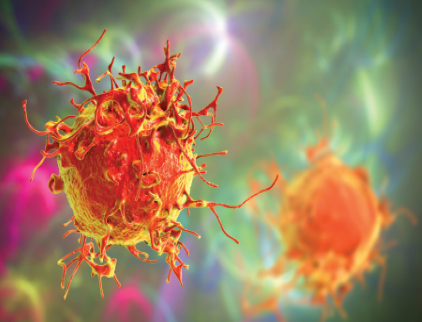A Dual Immunotherapy for Metastatic Melanoma

By Ted Rosen, MD
Opdualag is a fixed-dose combination of the LAG-3-blocking antibody relatlimab and the programmed death receptor-1 blocking antibody nivolumab to treat adult and pediatric patients with unresectable or metastatic melanoma.
The FDA recently approved a dual immunotherapy drug for the treatment of adult and pediatric patients 12 years of age or older with unresectable or metastatic melanoma. The new drug, marketed under the brand name Opdualag (Bristol-Myers Squibb) consists of nivolumab (a widely used PD-1/PD-L1 inhibitor) and a novel agent known as relatlimab. Relatlimab is a lymphocyte-activation gene 3 (LAG-3) blocking agent.
Efficacy was evaluated in a randomized (1:1), double-blinded trial in 714 patients with previously untreated metastatic or unresectable Stage III or IV melanoma (NCT03470922). The trial excluded patients with active autoimmune disease, medical conditions requiring systemic corticosteroid or immunosuppressive treatment, uveal melanoma, and active or untreated brain or leptomeningeal metastases.
Patients were randomized to receive Opdualag (nivolumab 480 mg and relatlimab 160 mg) by intravenous infusion every 4 weeks or only nivolumab 480 mg by intravenous infusion every 4 weeks until disease progression was noted or unacceptable toxicity occurred. The primary efficacy outcome measure was progression-free survival, as determined by a blinded independent central review. Median progression-free survival was 10.1 months (95% CI: 6.4-15.7) in the Opdualag arm and 4.6 months (95% CI: 3.4-5.6) in the nivolumab arm.1
Progression-free survival at 12 months was 47.7% in the Opdualag arm compared to 36% in the nivolumab-only arm of the pivotal study.1
As might be expected, significant treatment-related adverse events were more common in combination therapy than with nivolumab alone (18.9% versus 9.7%). The most common adverse reactions associated with Opdualag administration were hypothyroidism or thyroiditis, musculoskeletal pain, fatigue, nonspecific drug rash (9.3%), pruritus, and diarrhea/colitis.1 The most common laboratory abnormalities (≥20%) were decreased hemoglobin, decreased lymphocytes, increased aspartate aminotransferase (AST) and alanine aminotransferase (ALT), and decreased sodium.1

Aside from the obvious clinical benefit, this new drug puts into play a new target for checkpoint inhibition: LAG-3. This is a receptor found on a variety of immune effector cells, including activated T- and B-lymphocytes, and natural killer cells.2 LAG-3 functions as a signaling inhibitor; thus, LAG-3 blockade restores anti-tumor effects, particularly of T-cells. Relatlimab is a monoclonal antibody directed against LAG-3. Tumor-infiltrating lymphocytes with high LAG-3 expression, and thus best subject to blockade, include ovarian and colorectal cancer, melanoma, and some hematological malignancies (e.g., Hodgkin disease).
As noted by Heymann,3 many questions remain. For example, how does this new combination drug compare to the current standard of care nivolumab plus ipilimumab? It would also be interesting to see if relatlimab itself can function as a salvage drug when/if primary checkpoint inhibition fails. Finally, can relatlimab be utilized successfully concurrent to or after BRAF or MEK targeted therapy for advanced melanoma?
References
1. Tawbi HA, Schadendorf D, Lipson EJ, et al. Relatlimab and Nivolumab versus Nivolumab in Untreated Advanced Melanoma. N Engl J Med. 2022;386(1):24-34. doi:10.1056/NEJMoa2109970.
2. Lythgoe MP, Liu DSK, Annels NE, et al. Gene of the month: lymphocyte-activation gene 3 (LAG-3). J Clin Pathol. 2021;74(9):543-547. doi:10.1136/jclinpath-2021-207517.
3. Heymann WR. Lagging Ahead: LAG-3 Checkpoint Inhibition for Advanced Melanoma. Dermatology World Insights and Inquiries, May 11, 2022. Lagging ahead: LAG-3 checkpoint inhibition for advanced melanoma (aad.org).


